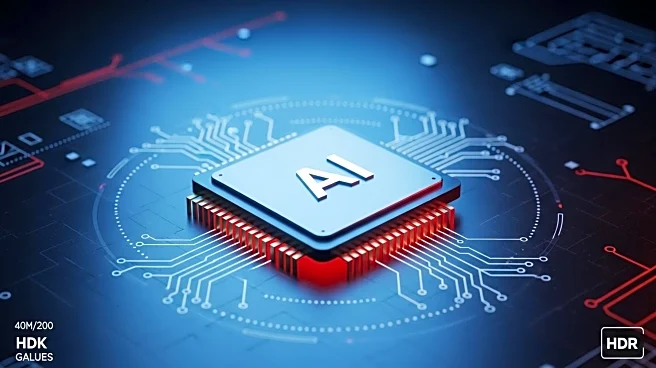What's Happening?
Nvidia CEO Jensen Huang has commented on the competitive landscape of artificial intelligence between the United States and China. Huang stated that the U.S. is 'not far ahead' of China in the AI race, emphasizing the need for a 'nuanced strategy' to maintain its lead. He acknowledged the advancements of Chinese AI models, such as DeepSeek, Alibaba, and Baidu, which he described as 'well ahead' in the open-source domain. Despite U.S. models being more advanced overall, Huang warned against underestimating Chinese chip systems from companies like Huawei. His remarks come amid ongoing U.S. chip restrictions and follow his visits to China in July. President Trump recently spoke with Chinese President Xi Jinping, announcing plans for a meeting at the APEC summit in South Korea later this month.
Why It's Important?
The comments from Nvidia's CEO highlight the intensifying competition in AI technology between the U.S. and China, which has significant implications for global tech leadership and economic power. The U.S. has traditionally been a leader in AI innovation, but China's rapid advancements pose a challenge to this dominance. The strategic approach suggested by Huang could influence U.S. policy and corporate strategies in maintaining technological superiority. The ongoing dialogue between President Trump and President Xi Jinping may also impact diplomatic relations and trade policies, particularly concerning technology and intellectual property rights.
What's Next?
The upcoming meeting between President Trump and President Xi Jinping at the APEC summit could lead to discussions on technology cooperation or further restrictions. Stakeholders in the tech industry, including companies like Nvidia, may need to adapt their strategies based on the outcomes of these diplomatic engagements. Additionally, the U.S. government might consider revising its policies on chip exports and AI collaboration to address the competitive pressures highlighted by Huang.
Beyond the Headlines
The AI race between the U.S. and China raises ethical and security concerns, particularly regarding data privacy and the use of AI in surveillance. The development of AI technologies in both countries could lead to shifts in global power dynamics, influencing international relations and economic policies. Long-term, this competition may drive innovation but also necessitate discussions on the responsible use of AI and the establishment of international standards.










